In his most recent role with IKEA Mr Lars Svensson is on a mission to make sure his current sustainability role will no longer be needed once his task is completed.
“We are on a five year mission to integrate sustainability into our everyday business and also securing that the sustainability function ceases to exist.”
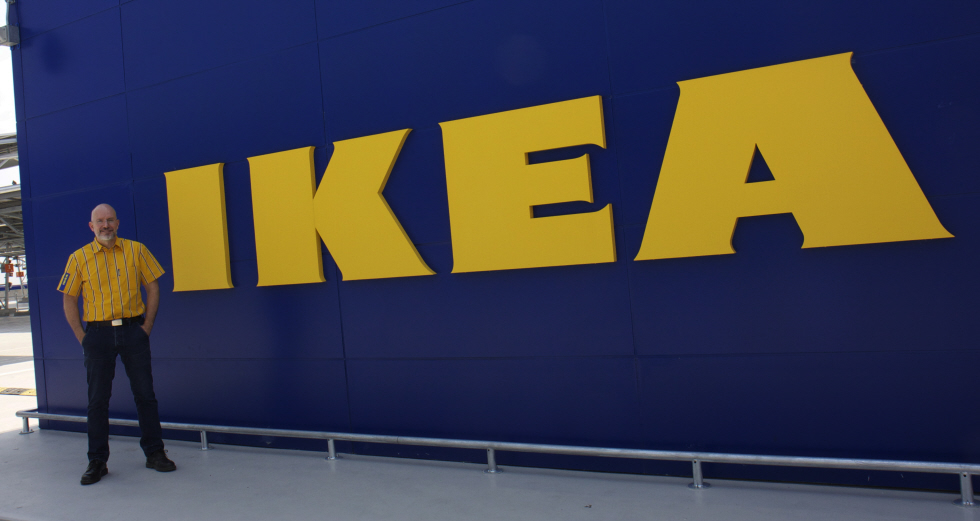
In his role regarding both sustainability and corporate communication, Lars Svensson is spearheading this to become an integral and natural part across IKEA Southeast Asia.
It may come as a surprise to some but also on the retail side of the business Ikea currently still has many things to do.
“You can look at the Ikea supply chain doing a lot of good work in this part of the world. On the front side, where we meet the customers, we can play a larger role than we have done historically. So in 2013 we began our work in implementing the same code of conduct for the suppliers of products and services to our stores,” Lars told a Nordic responsible business seminar in Bangkok. The retail side has benefited from the manufacturing’s code of conduct historically.
“Ikea has a fairly complete value chain; all the way from forest down to meeting with the consumers and to the home delivery. It started off from the beginning looking at how we could save as much as possible. Saving on resources means a lower environmental impact. And the objective of that was to achieve as low prices as possible.”
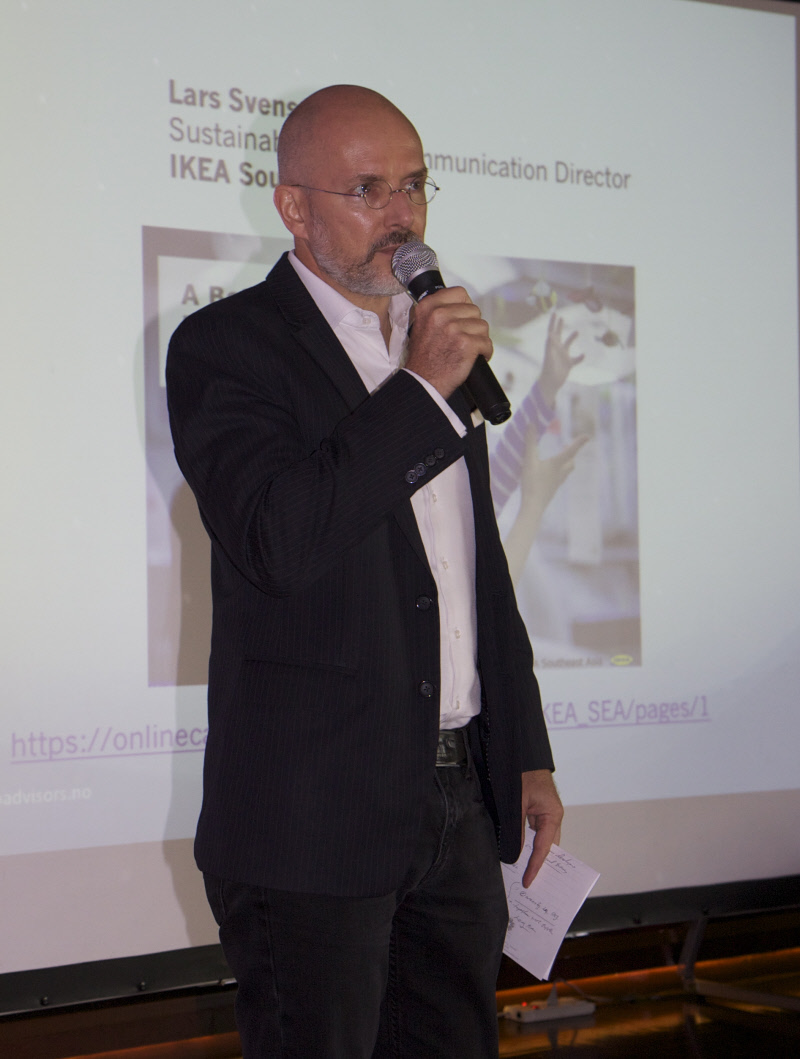 Then, after a couple of incidents generating a lot of publicity, it’s also about the risk aspect from reputational control, to actually take a large responsibility to secure that Ikea by their actions have a positive impact – on the community, in the society and also on the environment in order to drive towards securing their long term vision to create a better everyday life for the many people.
Then, after a couple of incidents generating a lot of publicity, it’s also about the risk aspect from reputational control, to actually take a large responsibility to secure that Ikea by their actions have a positive impact – on the community, in the society and also on the environment in order to drive towards securing their long term vision to create a better everyday life for the many people.
“It’s a moving target. And it has to do with what the customers are expecting, government regulations and what the prospect is for you as a company to build the right decisions from the long-term perspective too,” Lars continued.
Also, it is about sending a signal that this is a way they can improve and create a better life for more people – Ikea’s vision. “And we know for a fact, and find partners and ways of doing business in a new way, that it also helps develop our business and over time generates increased productivity. So it also makes good business sense. That is sort of the essence of an integrated sustainability; we do it because it is the right thing for the business, for people and for the planet,” Lars tells ScandAsia.
“The first thing we have done is to remove the store sustainability managers. The minute you have someone dedicated the tendency can be that you refer to a department or an individual with the responsibility, while you do not have to take the responsibility yourself. But if you want to make it a natural part of your business then everyone needs to feel and have that ownership,” he explains.
“So, that function is now owned jointly by the store management team and the store manager. And that is of course a challenge when you go through that transition. So how do you continue to drive it with a larger group, and having that sense of ownership? You only secure that by answering also internally to the respective departments: What’s in it for me? As a department it needs to make business sense too; representing a true standing from a policy point of view clearly defined in our values, and, long-term wise, protecting the integrity of the brand and generating a sustainable business,” he continues.
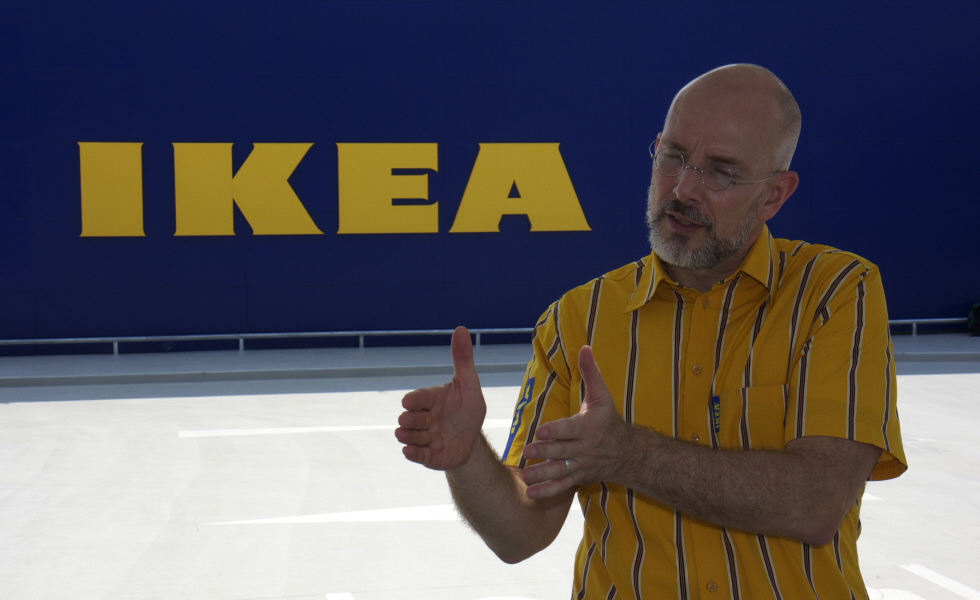
Endorsed by owners and management
The role for Lars is to keep it going and ensure that the ownership transfer continues to evolve, and also that it gets institutionalised in a way that it’s a natural part of the business.
When he was offered a regional sustainability role it meant that this was also endorsed by the owners and management team. “That’s a strong one, and creating this position for sustainability in the management team is sending a strong signal internally in the organisation.”
“I say: ‘We don’t have a low price manager in Ikea. In order to get to have a low price on our products and create affordability the cost consciousness goes through the whole organisation, through our DNA.’ And that’s what we want also sustainability to be; an integrated part of our everyday job, a natural part of everyone’s responsibility. Sustainability is not a function. It is a way of doing business.”
“In our Ikea Southeast Asia report for 2017 we made sure that, be it Ikea or any of the shopping centres, every function, one way or the other, mentioned the sustainability issue – integrated into the messaging.”
“You make a commitment and talk about how you want to conduct your business in totality and make the ownership resting with business decision makers who knows and understands their business.”
That is the formula for long-term change that has an impact on how one does business on everyday level.
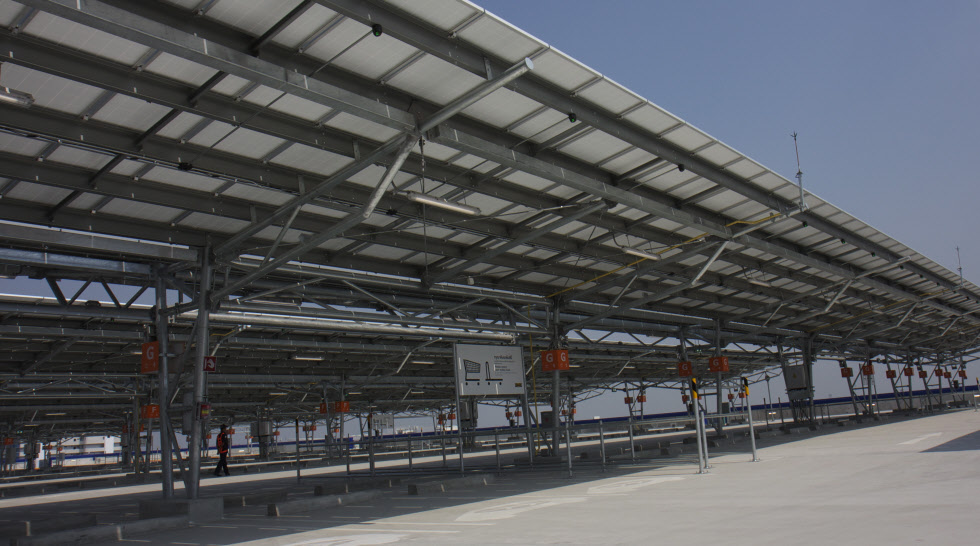
LEED certification
But out in reality things are not given. Ikea faces the same challenges as many SMEs with suppliers when it comes to achieving and following compliance in a country like Thailand. “It depends a lot on your supply channel and chain, working with them on what they are willing to do. So you need to find suppliers that you can develop a partnership with. This may increase the cost potentially in the beginning. So then you need to be fair also in the discussion with your supplier. It requires collaboration and a joint journey which we cannot do on our own.”
When constructing new stores and shopping centres, recently Ikea Bang Yai in Thailand, and in rebuilding IPC Shopping Center in Kuala Lumpur, Ikea made it part of the conditions with the main contractors that they had to follow its supply standards.
Ikea has policies on maximum work hours, safety, waste management, and to follow decent labour standards; including when it comes to the security guards, the products in the Ikea food stores, cleaning services etc.
Within construction Lars thinks they have done remarkably well and have come very far up to now. “I’d say it’s an area we can be extremely proud of, and going absolutely against what is the norm in the industry in a way because no one else does it the way we do it. This we will apply also when we build a new shopping centre or stores in Malaysia for example.”
He says Southeast Asia, which is challenging enough with migrant workers and regarding the amount of working hours etc. becomes even more complex when adding an industry like construction on top of that.
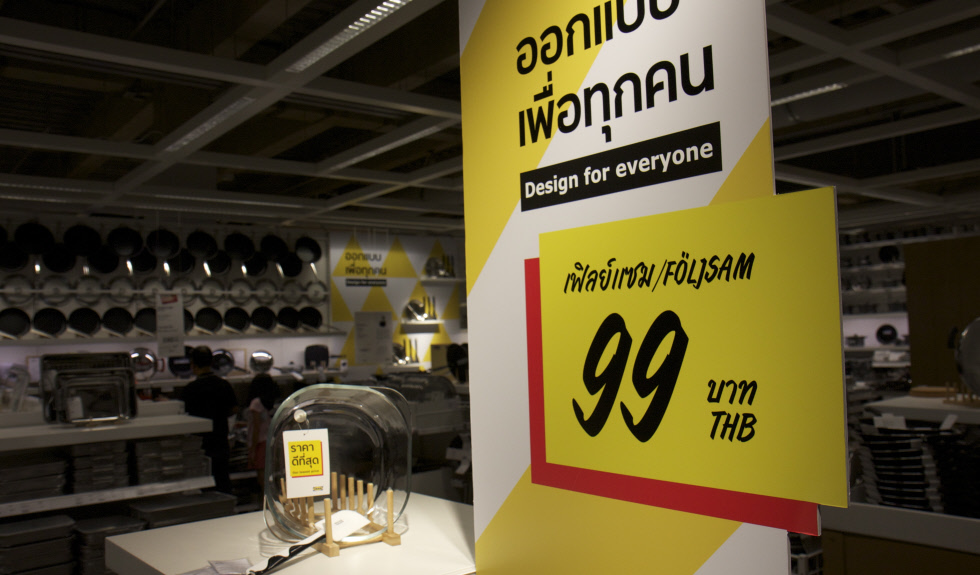
“This is then managed and run by our project leaders and our heads of construction that works within our organisation as well as putting up those demands. It is a good example of distributed ownership of what sustainability means for our organisation too. We have seen the interest also from other parts of the Ikea world when it comes to how we are working here; construction is tricky in any part of the world – there are always discussions on manpower, where they come from, how much they are paid and so on,” he adds.
The new Ikea store in Bangkok, their largest to date in SEA, is also Thailand’s first retail outlet that meets some of the world’s highest standards for sustainability, LEED Platinum (as certified building standard). Similarly MyTown Shopping Centre in Kuala Lumpur was built according to LEED standard, has solar panels on the roof, collects rain water etc.
“That means the requirements are fulfilled both on the construction when it comes to insulation, building material and different types of energy savings measures and also how the store is operated afterwards. Every time we build a new project the last one should be the standard and we try to go further from there.”
Inspiring the consumers
Lars also informs that ‘Caring for people & planet’ is a renewed value now made part of Ikea’s identity and value base that they simultaneously communicate, share and also live with their co-workers.
“Our values are communicated internally and we try to live those values, leading by example.”
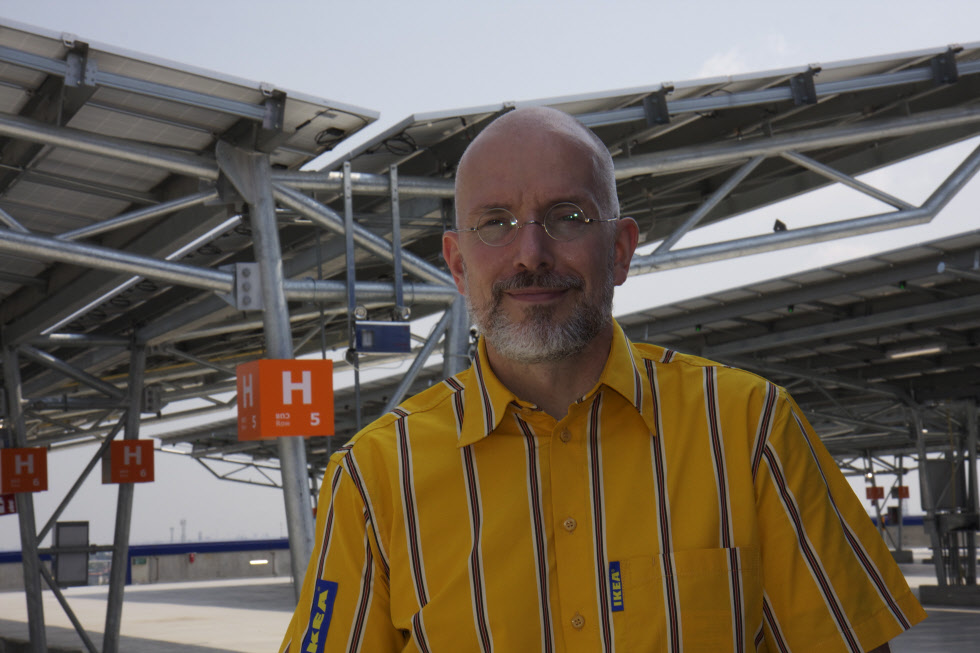
The ’People & Planet Positive Strategy’ also focuses on inspiring and enabling customers, who are now able to discover in special showrooms and throughout the store how affordable small changes with home furnishing solutions can help them to live a more sustainable life (save energy and water, reduce waste, live more healthily and save money).
“But we also want to inspire people to think of ways of saving also through the products they buy. Families who try this save 20 per cent straight away – from simple measures. And it’s real money. And that’s what in it for them,” says Lars and adds: “We wanted to find a way of inspiring those who’s not having it as a top-of-mind priority and give them a reason to consider it.”
“And the way we can do it – and part of the reason why people come to us – is to show them how much money they actually can save through some of the choices in the products they buy from us and some of the habits they can change, without compromising on their comfort, their style, but with very affordable solutions.”
Lars finds his task very stimulating. “The role combined with the strength of the IKEA brand also shows a consistency between what we say and how we work. That makes it very attractive and you have integrity in what you do. The work and way of working our organisation do is recognised by a lot of organisations and people as well so it is easy to find ways of collaborating and being listened to also when it comes to government work and when you are entering into a new market too,” he concludes.

